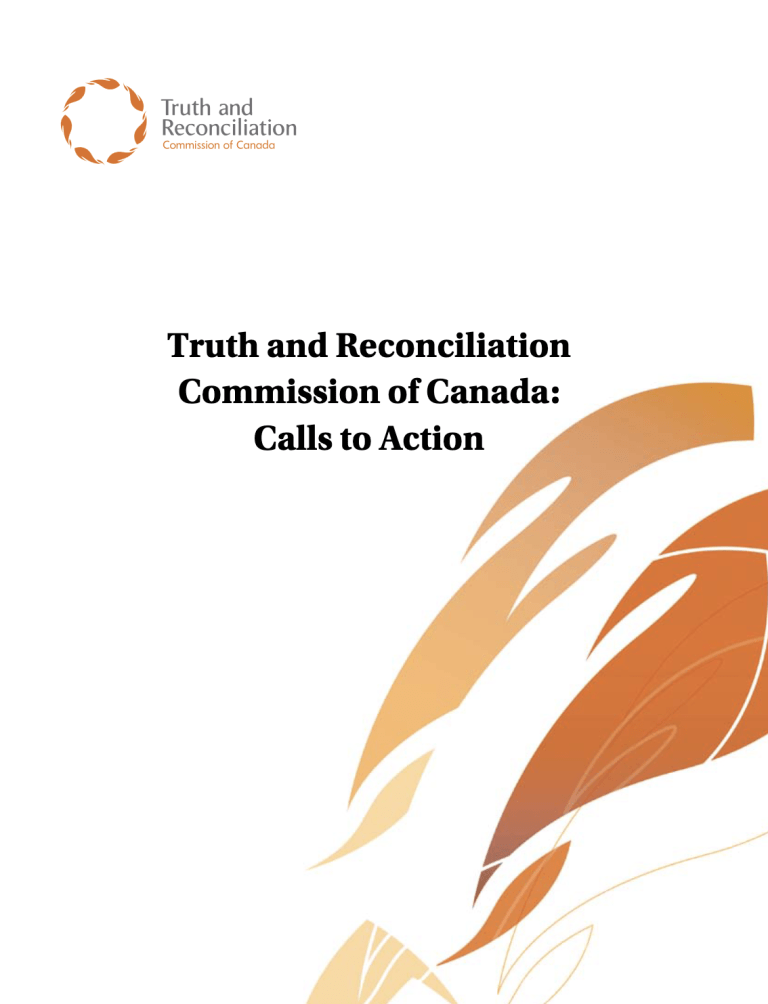14 search results
for
Municipal governments
Legacy
Child welfare
Recommendation 3: We call upon all levels of government to fully implement Jordan’s Principle.-
Category and theme:
Audience:
Groups affected:
Legacy
Language and culture
Recommendation 17: We call upon all levels of government to enable residential school Survivors and their families to reclaim names changed by the residential school system by waiving administrative costs for a period of five years for the name-change process and the revision of official identity documents, such as birth certificates, passports, driver’s licenses, health cards, status cards, and social insurance numbers.-
Category and theme:
Audience:
Groups affected:
Legacy
Health
Recommendation 23: We call upon all levels of government to:- Increase the number of Aboriginal professionals working in the health-care field.
- Ensure the retention of Aboriginal health-care providers in Aboriginal communities.
- Provide cultural competency training for all healthcare professionals.
-
Category and theme:
Audience:
Groups affected:
Legacy
Justice
Recommendation 40: We call on all levels of government, in collaboration with Aboriginal people, to create adequately funded and accessible Aboriginal-specific victim programs and services with appropriate evaluation mechanisms.-
Category and theme:
Audience:
Groups affected:
Reconciliation
Canadian governments and the United Nations Declaration on the Rights of Indigenous People
Recommendation 43: We call upon federal, provincial, territorial, and municipal governments to fully adopt and implement the United Nations Declaration on the Rights of Indigenous Peoples as the framework for reconciliation.-
Category and theme:
Audience:
Groups affected:
Reconciliation
Royal Proclamation and Covenant of Reconciliation
Recommendation 47: We call upon federal, provincial, territorial, and municipal governments to repudiate concepts used to justify European sovereignty over Indigenous peoples and lands, such as the Doctrine of Discovery and terra nullius, and to reform those laws, government policies, and litigation strategies that continue to rely on such concepts.-
Category and theme:
Audience:
Groups affected:
Reconciliation
National Council for Reconciliation
Recommendation 55: We call upon all levels of government to provide annual reports or any current data requested by the National Council for Reconciliation so that it can report on the progress towards reconciliation. The reports or data would include, but not be limited to:- The number of Aboriginal children—including Métis and Inuit children—in care, compared with non-Aboriginal children, the reasons for apprehension, and the total spending on preventive and care services by child-welfare agencies.
- Comparative funding for the education of First Nations children on and off reserves.
- The educational and income attainments of Aboriginal peoples in Canada compared with non-Aboriginal people.
- Progress on closing the gaps between Aboriginal and non-Aboriginal communities in a number of health indicators such as: infant mortality, maternal health, suicide, mental health, addictions, life expectancy, birth rates, infant and child health issues, chronic diseases, illness and injury incidence, and the availability of appropriate health services.
- Progress on eliminating the overrepresentation of Aboriginal children in youth custody over the next decade.
- Progress on reducing the rate of criminal victimization of Aboriginal people, including data related to homicide and family violence victimization and other crimes.
- Progress on reducing the overrepresentation of Aboriginal people in the justice and correctional systems.
-
Category and theme:
Audience:
Reconciliation
Professional development and training for public servants
Recommendation 57: We call upon federal, provincial, territorial, and municipal governments to provide education to public servants on the history of Aboriginal peoples, including the history and legacy of residential schools, the United Nations Declaration on the Rights of Indigenous Peoples, Treaties and Aboriginal rights, Indigenous law, and Aboriginal–Crown relations. This will require skills based training in intercultural competency, conflict resolution, human rights, and anti-racism.-
Category and theme:
Audience:
Groups affected:
Reconciliation
Education for reconciliation
Recommendation 64: We call upon all levels of government that provide public funds to denominational schools to require such schools to provide an education on comparative religious studies, which must include a segment on Aboriginal spiritual beliefs and practices developed in collaboration with Aboriginal Elders.-
Category and theme:
Audience:
Groups affected:
Reconciliation
Missing children and burial information
Recommendation 75: We call upon the federal government to work with provincial, territorial, and municipal governments, churches, Aboriginal communities, former residential school students, and current landowners to develop and implement strategies and procedures for the ongoing identification, documentation, maintenance, commemoration, and protection of residential school cemeteries or other sites at which residential school children were buried. This is to include the provision of We call upon the federal government to work with provincial, territorial, and municipal governments, churches, Aboriginal communities, former residential school students, and current landowners to develop and implement strategies and procedures for the ongoing identification, documentation, maintenance, commemoration, and protection of residential school cemeteries or other sites at which residential school children were buried. This is to include the provision of appropriate memorial ceremonies and commemorative markers to honour the deceased children.-
Category and theme:
Audience:
Groups affected:
